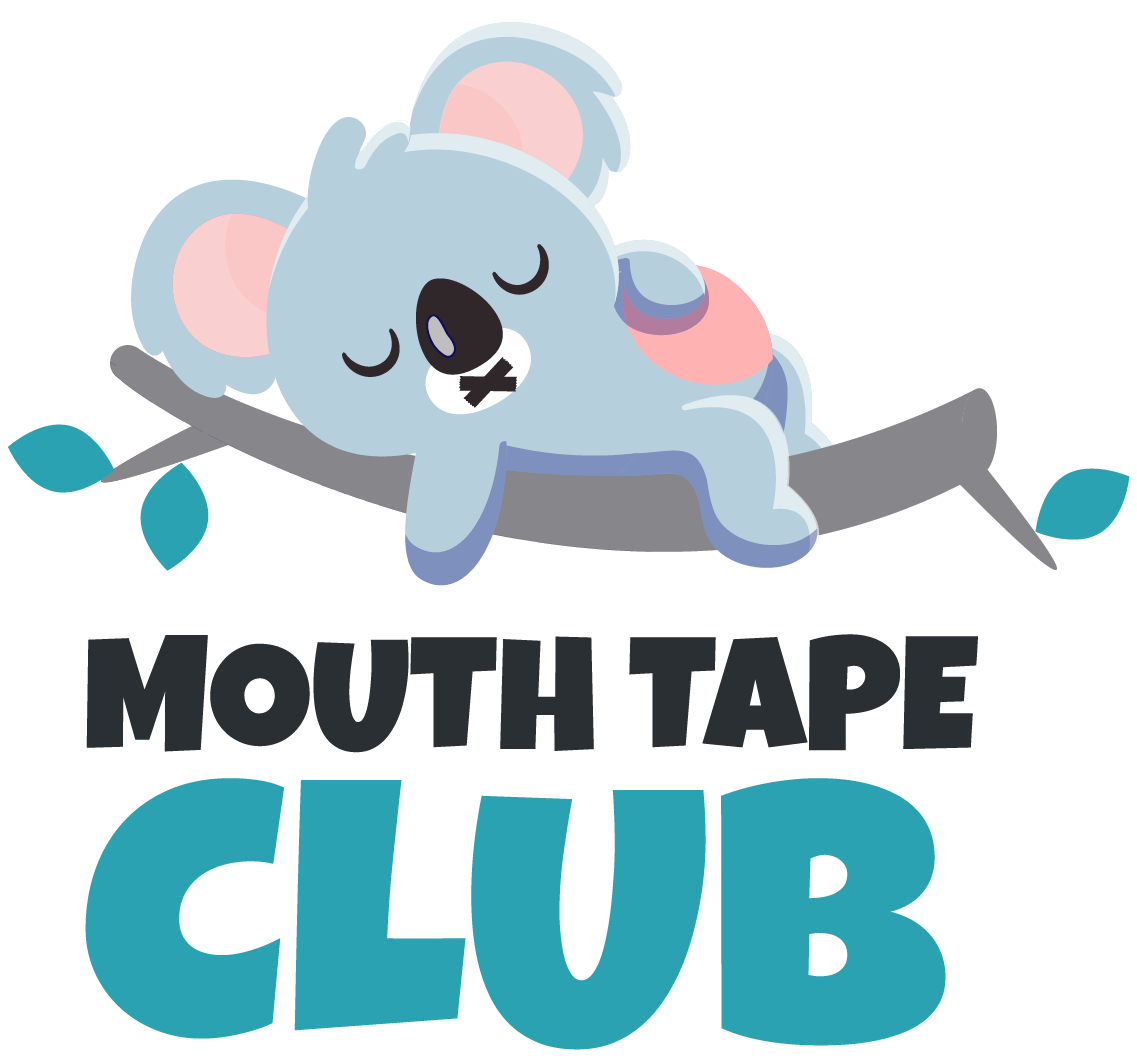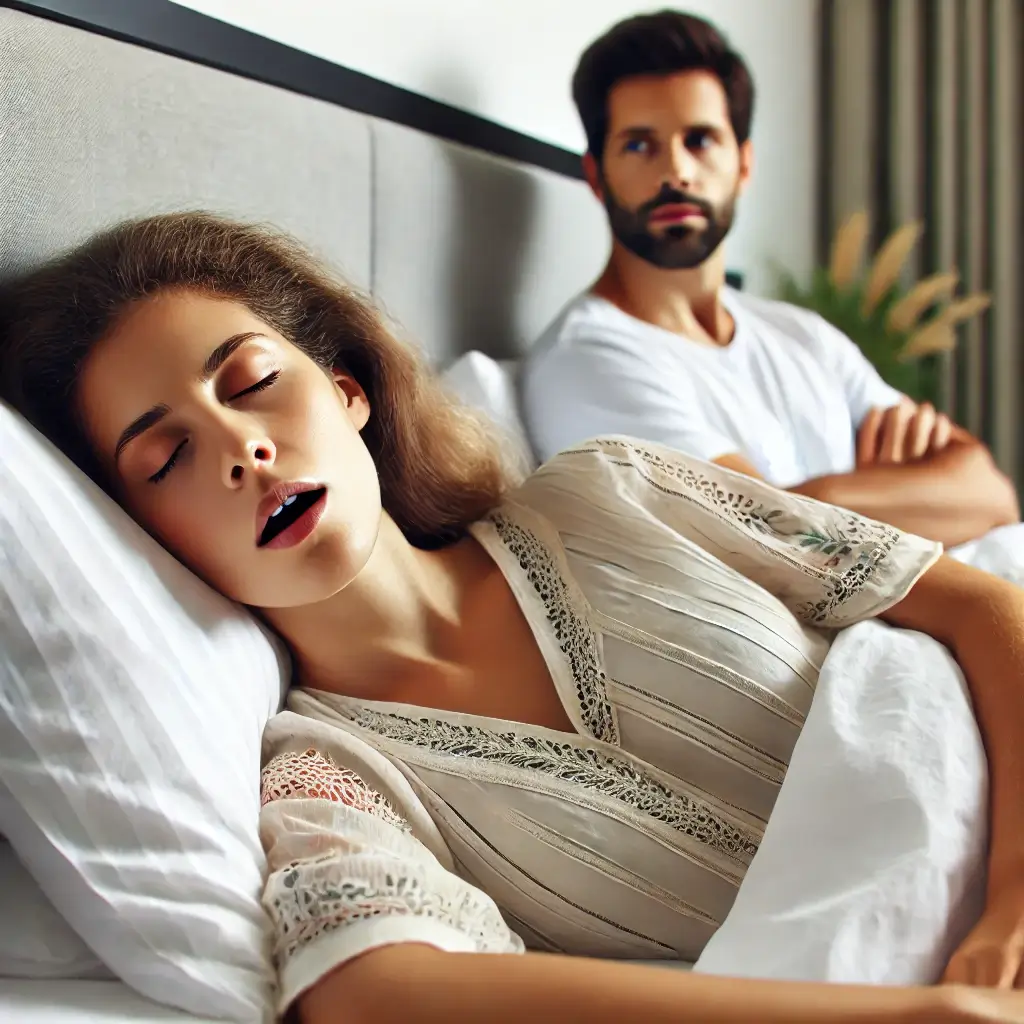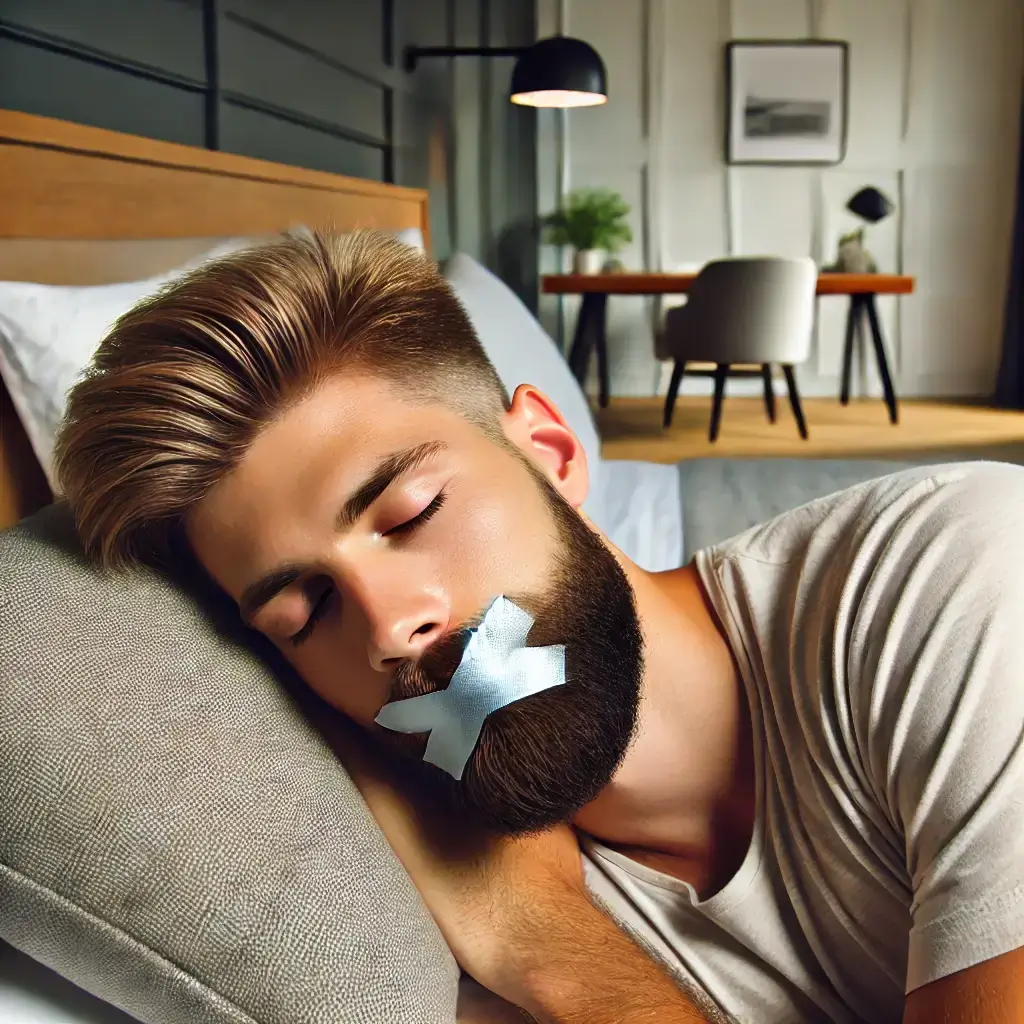Maybe you’ve seen the new viral trend all over social media. Mouth taping has become a way to help people breathe through their nose at night and stop snoring for good.
But it’s much more than that. Mouth breathing, unfortunately, leads to sleep disorders, including sleep apnea, obstructive sleep apnea, and other sleep-related issues such as dry mouth and bad breath. People have been looking for a non-invasive, simple solution to promote more nose breathing and keep their mouths shut while sleeping.
Mouth breathing can be a nuisance, so taping your mouth shut seems a plausible solution. But is it safe, and more importantly, how well does it work?
Here are the various reasons you should consider mouth tape and practice it while sleeping.
What is Mouth Tape, and How Does it Work?
Knowing when you are breathing through your mouth instead of your nose can be challenging. Breathing through your mouth may also seem harmless. But mouth taping is a helpful practice if you’re bothering a spouse or mate with your snoring or wake up with a constant dry mouth or sore throat.
Mouth taping uses surgical tape to keep your mouth closed while you sleep, promoting more deep sleep and nasal breathing. People who use mouth taping say that it provides help with the following sleep disorders and issues:
- Snoring
- Dry mouth
- Sore throat
- Grinding teeth or clenching jaw
- Bad breath and gum disease
When you mouth breathe, you’re also much more likely to experience problems such as high blood pressure, worsened asthma, and nighttime coughing.
Taping your mouth shut encourages you to breathe through your nose. However, the idea isn’t to completely block the mouth from the air, as this can be a dangerous practice. Mouth taping needs to be done correctly to ensure it’s safe.
The Benefits of Mouth Taping
There are advantages that you experience when you mouth tape. One of the most significant changes is within your oral health. The experts at Colgate have explored varying studies and state that mouth taping leads to fewer cavities, a reduced risk for gum disease, virtually no snoring, and an overall better night’s sleep.
Mouth taping leads to other health benefits, such as boosting the immune system. Breathing through the nasal cavity helps ensure that germs, dust, and other particles don’t enter the body or lungs. When you breathe through your nasal passages, the mucus membrane helps catch and kill those germs.
Since mouth breathing also puts you at a higher risk for elevated blood pressure, mouth taping can lower your blood pressure. Mouth taping helps patients with high blood pressure increase nitric oxide production through nasal breathing, which reduces blood pressure.
Safety Measures with Mouth Tape
You may wonder how you can start mouth taping to obtain these benefits. It would be best if you talked to your doctor first before jumping on this TikTok trend. Many people don’t understand that using duct tape or masking tape completely blocks your airways through the mouth and can cause massive problems when you are sleeping. Not to mention, pulling off the tape in the morning is sure to be painful!
Mouth breathers can find relief in mouth tape, but you must do so carefully and safely. If you suffer from sensitive skin, for instance, you may want to be choosing about which mouth tape you use. You risk having skin irritation or red, swollen skin around your lips from the tape due to an allergic reaction.
You want to choose a mouth tape that is safe for your skin and made of breathable material that won’t pull your skin (or facial hair). It might help to consult with a doctor or follow a tutorial to help you apply the mouth tape.
You may need to cut the pieces of tape to fit your mouth. Medical tape is usually recommended; it’s a skin-safe tape made to be put directly on the skin. It would be best if you cut a piece of tape to fit snugly over the lips, but you may need to work with it for a few days to get the right fit. Check the adhesive tape to ensure that it has the ability to breathe (porous tape).
Don’t use mouth tape if you suffer from health issues such as seasonal allergies or occasional colds where you experience nasal congestion, as it will have negative effects. Use a smaller adhesive strip to give you more airflow through the mouth if you insist on using mouth tape while congested.
Alternative Options to Mouth Tape
Your doctor may not recommend mouth taping or think enough benefits depend on your conditions. Chronic mouth breathing may need a more substantiated treatment. CPAP machines may be more necessary in mild obstructive sleep apnea cases to ensure that all airways are open at night. And if you have nasal polyps, surgery may be a good idea.
Chin straps can be practical alternatives to mouth taping. They fit snuggly around your head and wrap around your ears to keep your mouth shut. You may need to see a sleep specialist to determine the cause of your disorder in case it stems from an underlying condition. It’s possible that instead of mouth tape, you need other ways to help you get a deeper sleep.
Nasal strips are another alternative to help you if you snore. They promote widened nasal passages at night for better sleep and can be beneficial when you experience issues like nasal congestion at nighttime.
More Research on Mouth Taping – Does Mouth Taping Work?
There are many studies yet to be done when it comes to mouth taping. Further research can provide more solid recommendations for mouth taping benefits. But, as long as the health trend is done correctly, it does seem that it’s a great way to help combat some of these mouth-breathing issues. The risks of mouth taping involve not being careful when applying the tape or not consulting to seek proper medical help before using it.
If you’re having trouble sleeping or find that you suffer from effects due to mouth breathing, consider looking into good nose-breathing habits, including using mouth tape, for a more restful night of sleep.



